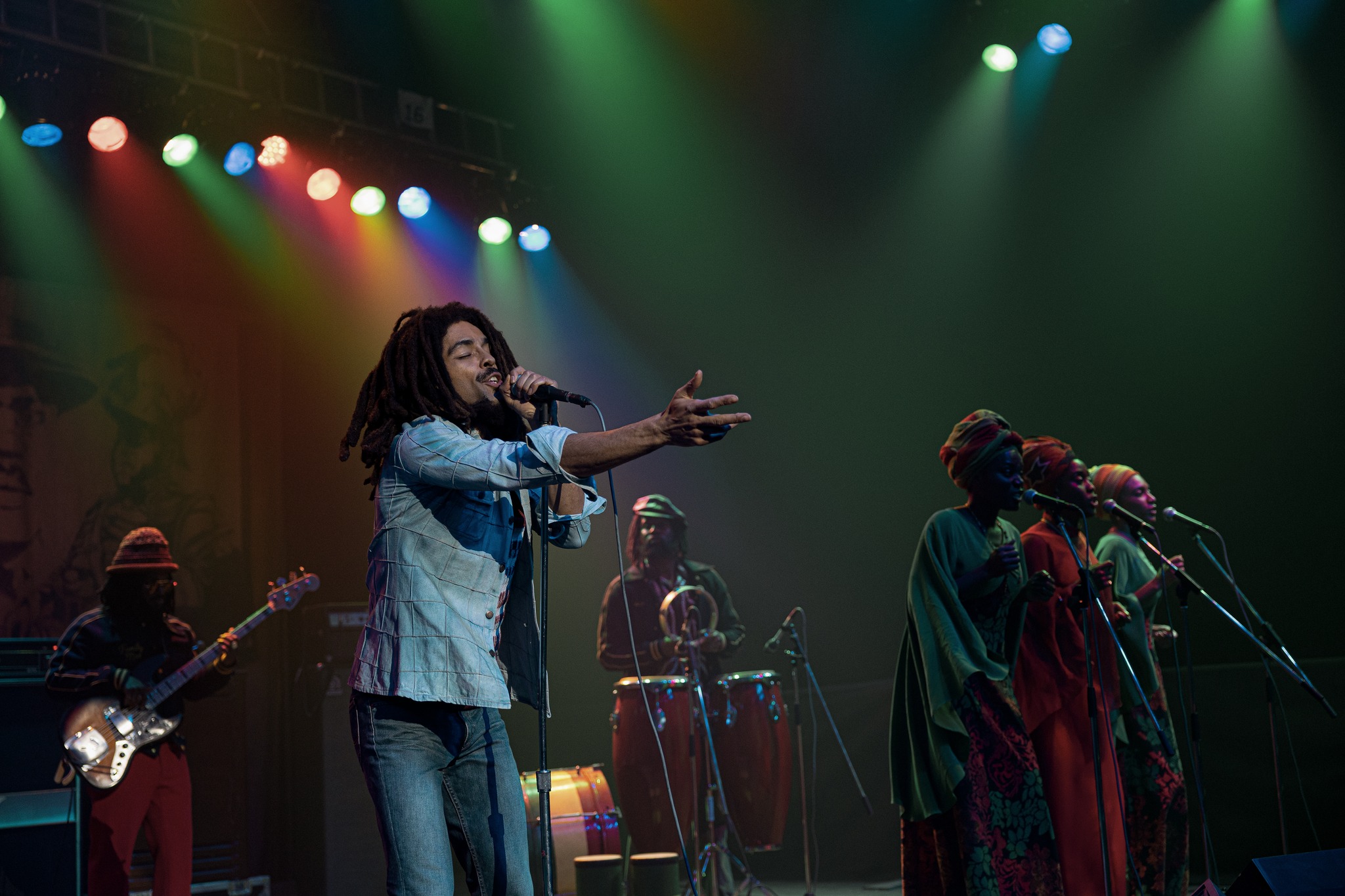
Travel Editor Pippa Kline reviews Bob Marley One Love, finding it to be a colourful and well-judged depiction of the star’s life
After reading Chris Salewicz’s biography on Bob Marley last year, I was highly anticipating the release of director Reinaldo Marcus Green’s biopic. The film’s release on Valentine’s Day, along with its title: Bob Marley: One Love, emphasises Marley’s preaching for peace and unity amidst the backdrop of a politically divided Jamaica of the 1970s.
Kingsley Ben-Adir stars as the iconic singer and is extremely compelling in his performance, truly capturing a likeness of spirit and voice of the idol. To feel he could accurately represent the singer, Adir listened to family recordings to capture Marley’s voice, and had frequent conversations with the family to understand him on a more personal level. The film’s nature as a family-led project makes it all the more touching and emotionally poignant. Rita Marley, Bob’s wife, as well as his children Ziggy and Cedella all acted as co-producers for the film.
The star’s humble character was never lost to fame
A criticism of the biopic genre has often been its tendency to fail to create a complete, nuanced picture of an idol’s life. Indeed, film as a mechanism for biographical representation is limited in its short format relative to the written biography. In comparison to Salewicz’s Bob Marley: The Untold Story, Green’s biopic did leave elements “untold”. Aspects of Marley’s life were glossed over, such as his frequent affairs, seemingly to maintain Marley’s idolised status. The film also largely focuses on the time period after Marley’s rise to fame; a more fruitful exploration of Marley’s life prior to global stardom would have been appreciated. The film does, however, provide detailed insight into the legend’s often troubled life: such as his attempted assassination in 1976, due to his position as an influential figure, a messenger through his art during a climactic point of political conflict between right- and left-wing parties within Jamaica. While Marley himself renounced political affiliation, he was a figure of reaction against social injustice. In particular, he emphasises reggae’s ability to bring these social injustices to light, and encourage revolution. Marley’s message, sung in ‘Trench Town’ on posthumously released album Confrontation: ‘we free our people with music’.
[Kingsley Ben-Adir] is extremely compelling
Shots of urban and rural Jamaica are particularly stunning and well-executed. Fast-paced performance and touring scenes are balanced with understated scenes depicting Marley and band-members running in the early mornings, playing football, and Marley alone composing songs as they come to him in the moment, truly displaying how the star’s humble character was never lost to fame.
One of the most compelling aspects of the film was its exploration of Rastafarian religion and culture. As someone whose knowledge of religion is unfortunately largely limited to a white, Eurocentric sphere, I enjoyed learning more about the Jamaica-developed religion and its significance to Bob Marley and the Wailers’ music, as the two cannot be separated. In particular, phrases such as ‘I-and-I’ which I had often heard reverberated in reggae music were explained: in Rastafarianism, pronouns such as ‘you’ and ‘me’ are replaced in favour of the phrase, to signify a crucial principle of equality and unity among people.
Verdict:
Bob Marley: One Love, is a moving depiction of an extremely important and influential artist, whose legacy extends beyond simply music. Personal ties to Marley on different levels of the project make it an authentic representation. Shortcomings arise from the limitations of the biopic in general, yet it is certainly a film to watch in order to understand not only Bob Marley the individual, but his incorporation of Rastafarianism’s messages of peace, unity and social uprising into his music.
Rating: 8/10
Bob Marley One Love is in cinemas now.
Enjoyed this review? Check out more by Redbrick Film:
Review: Mean Girls (2024) | Redbrick Film
Comments